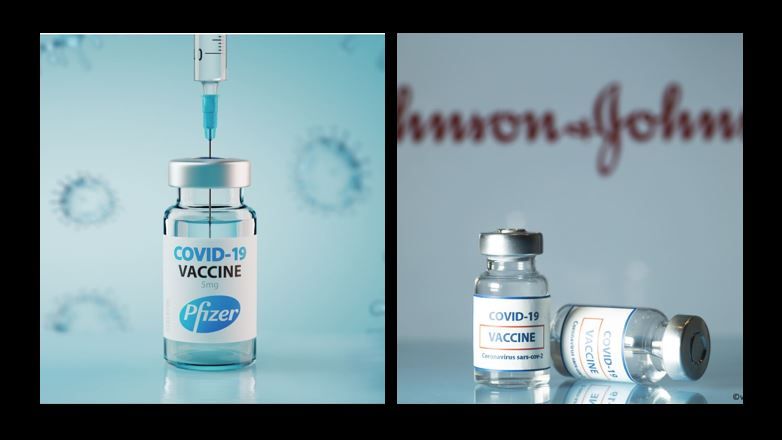- Clinical Technology
- Adult Immunization
- Hepatology
- Pediatric Immunization
- Screening
- Psychiatry
- Allergy
- Women's Health
- Cardiology
- Pediatrics
- Dermatology
- Endocrinology
- Pain Management
- Gastroenterology
- Infectious Disease
- Obesity Medicine
- Rheumatology
- Nephrology
- Neurology
- Pulmonology
J&J COVID-19 Booster May Offer More Protection in Mix-and-Match Scenario
A J&J booster shot following a 2-dose regimen of the Pfizer vaccine produced a greater CD8+ T-cell response than a third Pfizer dose, according to preliminary data.
A booster shot of the Johnson & Johnson (J&J) COVID-19 vaccine, administered to individuals at least 6 months after they had completed a 2-dose regimen with the Pfizer-BioNTech vaccine, increased both antibody and T-cell responses, according to findings of a small independent study conducted at the Beth Israel Deaconess Medical Center (BIDMC) in Boston.
Released by study sponsor J&J, the preliminary data also suggest that the protection afforded by a J&J booster may be more robust than that conferred by a third shot of the Pfizer vaccine and offer additional support for heterologous, aka mix-and-match, booster dosing. Findings appear in a preprint article posted on medRxiv and have yet to be peer reviewed.

“There is early evidence to suggest that a mix-and-match boosting approach may provide individuals with different immune responses against COVID-19 than a homologous boosting approach,” said study lead author Dan Barouch, MD, PhD, director of the Center for Virology and Vaccine Research at BIDMC, in a J&J press statement.
“In this preliminary study, when a booster dose of Ad26.COV2.S was given to individuals six months after a primary regimen with the BNT162b2 vaccine, there was a comparable increase of antibody responses at week four following the boost and a greater increase of CD8+ T-cell responses with Ad26.COV2.S compared with BNT162b2.”
The data from this phase 2 study dovetail with preliminary results from the UK COV-BOOST clinical study published online December 1, 2021, by Babbage et al in The Lancet. Babbage and colleagues report that after primary vaccination with 2 doses of either the Pfizer (n=108) or Oxford/ AstraZeneca (n=108) vaccine, boosting with a single dose of the J&J vaccine boosted antibody and neutralizing responses.
In the BIDMC study, Barouch and colleagues obtained biorepository samples from individuals who had received the Pfizer vaccine; those individuals then continued follow-up in the biorepository and were administered a Pfizer COVID-19 booster (n=24) or were enrolled in the ongoing J&J COV2008 study* and boosted with 1 of 3 doses of the J&J vaccine (n=41).
At 4 weeks following boosters with both the Pfizer and J&J vaccine, humoral responses led to similar levels of neutralizing and binding antibodies against the original SARS-CoV-2 strain and against both the Delta and Beta variants of the virus.
After the mix and match booster administration of the 2 vaccines, antibodies continued to increase for at least 4 weeks; among individuals who received a homologous boost with the Pfizer drug, however, antibodies declined from week 2 to week 4 after the booster dose.
The T-cell response to the J&J booster “appears to lead to a greater increase in CD8+ T-cell responses than boosting with BNT162b2”, according to the J&J statement.
In October 2021, the FDA authorized the use of a heterologous booster dose for all currently authorized and approved COVID-19 vaccines following the completion of primary vaccination. After a review of available data, the Agency found that the benefits of a single heterologous booster dose outweighed the known or potential risks.
*The COV2008 study is a Johnson & Johnson sponsored, ongoing, blinded Phase 2 clinical trial to evaluate its COVID-19 vaccine as a booster in adults 18 years of age and older.
